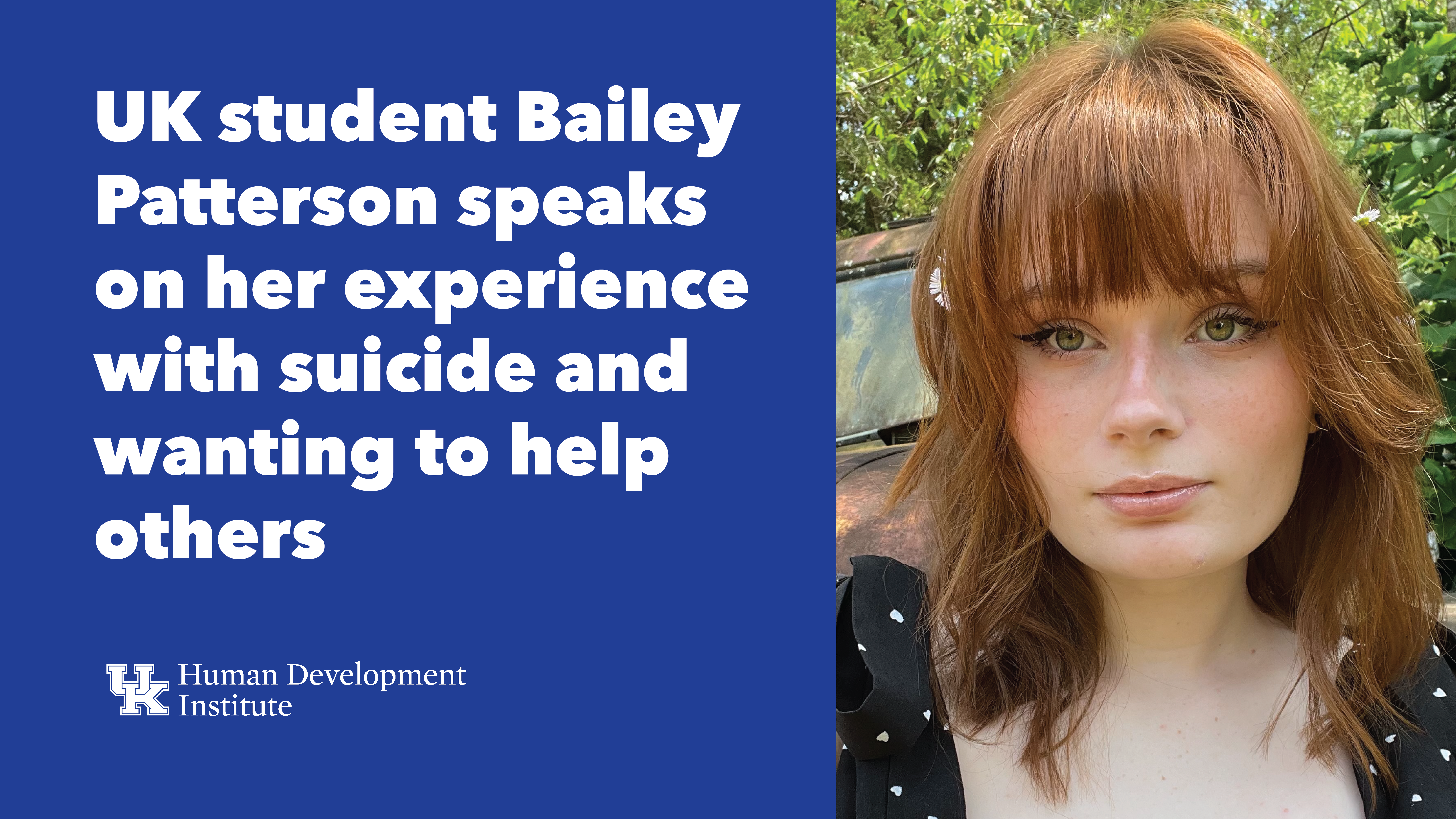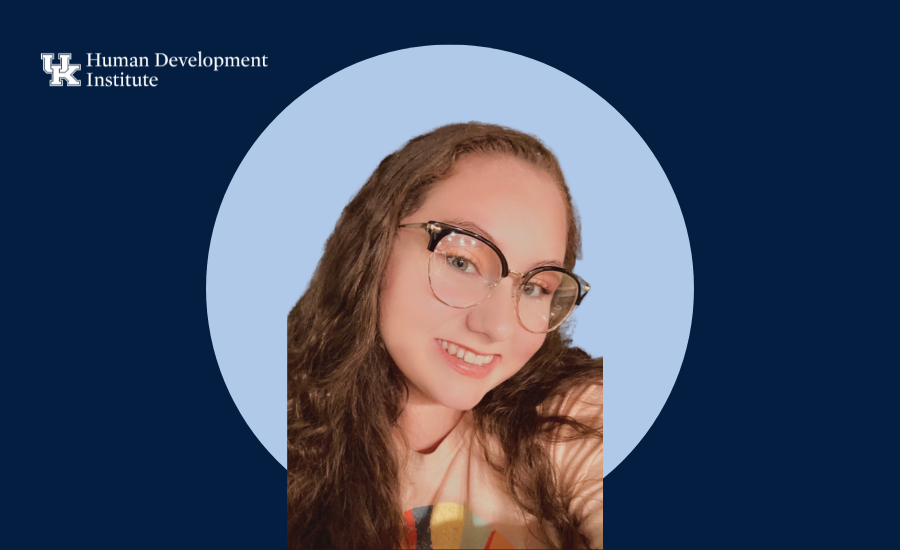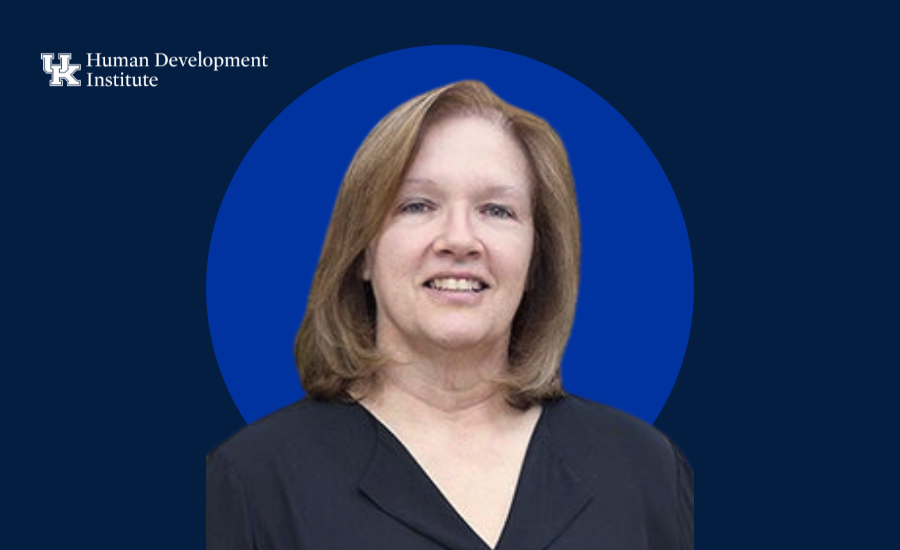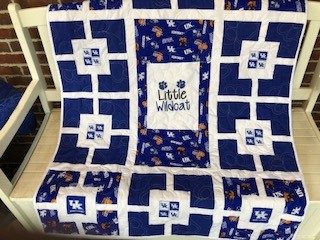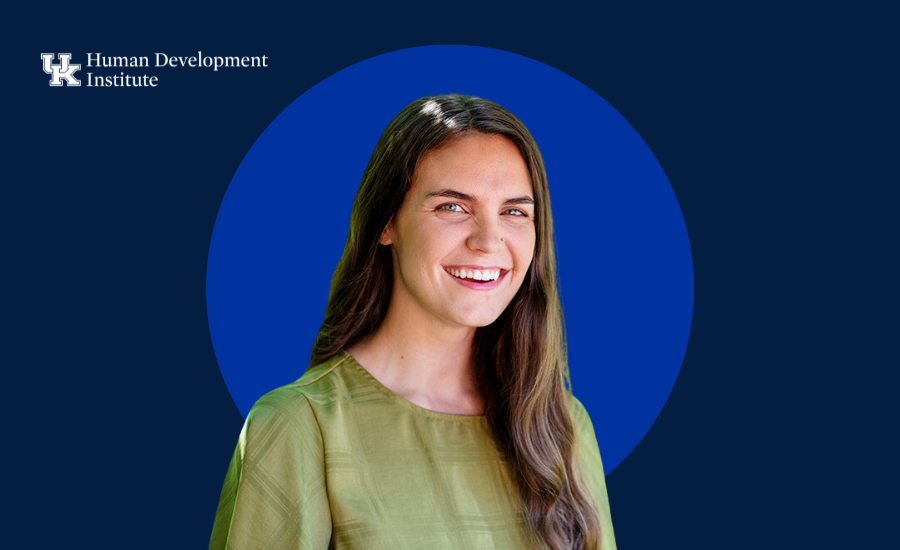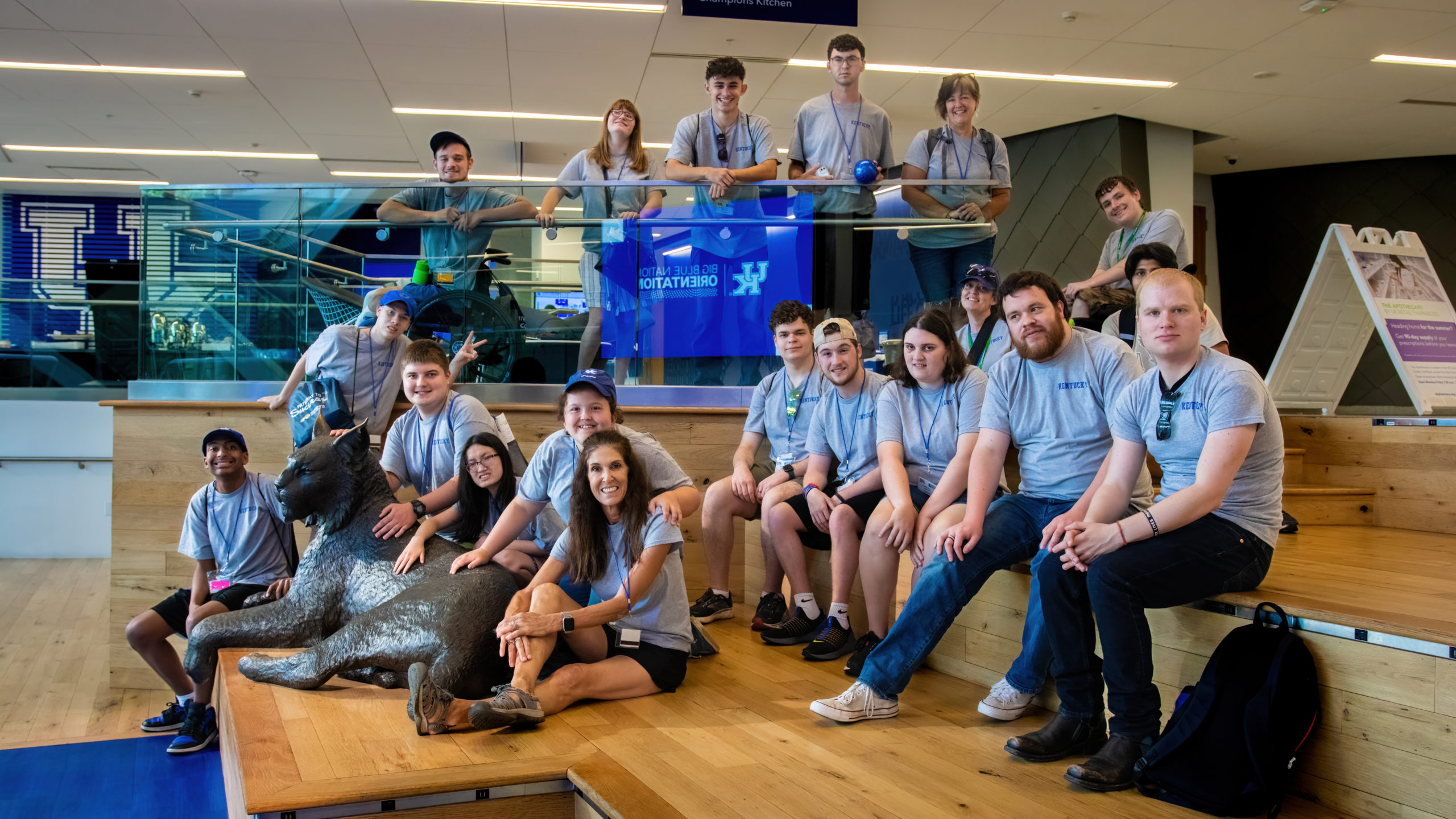The following article discusses suicide, suicidal ideation, miscarriage, and sexual abuse, which some readers may find distressing.
Bailey Patterson was 4 or 5 when she began struggling with suicidal thoughts.
“Things like ‘I wish I’d never been born,’ ‘I don’t want to be here,’ ‘I wish I would die,’” Patterson, a senior Interdisciplinary Disability Studies major at UK who identifies as multiply disabled, said. “Those thoughts progressed as life threw me more curveballs, where I was pretty actively having suicidal thoughts probably every day of my life when I was in middle school and high school. Still, I would never have a plan, it was just pretty aggressive thoughts.”
That lasted until she was 16, when a friend had experienced a traumatic event for which Patterson felt responsible. Her mother interrupted her first suicide attempt shortly after that.
Patterson is not alone in struggling with suicidal thoughts. According to the American Foundation for Suicide Prevention, suicide is the 11th leading cause of death in the US. The World Health Organization reports that it is the fourth leading cause of death among 15 to 29-year-olds. The CDC reports that 12.3 million American adults have serious suicidal thoughts and 1.7 million attempt suicide. In 2022, 49,449 people died by suicide.
Patterson considers herself chronically suicidal, but stresses that suicide is a complex issue. Mental illness is often a component of it – according to the National Alliance on Mental Illness, 46 percent of people who die by suicide have a known mental health condition – but Patterson stresses that there are other extenuating circumstances. She remembers her first stay as an inpatient in a mental health facility. The only other patients in her ward were girls, ages 12 to 17.
“There was a really common thread about gender-based violence,” she said. “Several of the girls on the ward had been sexually abused by older men.”
Patterson noted that she thinks this ties into a major factor in suicide that is commonly overlooked.
“There’s this narrative in popular culture that if someone is suicidal, it’s because they don’t see the value in their lives or they’re depressed, and you can do this that and the other to make it go away. You can take long walks and you can eat healthier and you’ll feel less depressed,” she said. “For many people, the cause of the suicidal thoughts or the depression is the situation they’re living in. There are people living in current abusive situations that they feel they have no way of escaping from, there are people who are dealing with interpersonal violence or abuse, there are people who are homeless, there are people who are in poverty, there are people who are experiencing systemic interpersonal racism and sexism and bigotry. Those things are not things that you can walk and eat better to get rid of.”
That means that addressing those issues will help also help address the risk of suicide among marginalized populations. Patterson believes that addressing those issues while promoting mental health will do a lot to solve the problem.
“I feel like if we understood that and worked towards those goals while also keeping in mind personal wellness and self-care and things like that, that would be a big help,” she said. “A lot of people are overlooking some of the greatest causes of distress that are leading people to be suicidal.”
She also remembers difficult times and experiences for both her and the others she met during her two inpatient stays. Among them, she particularly recalls a patient with a fear of needles being given medication by injection against her wishes when that patient felt there were other ways to administer similar medication and another woman on her second trip to inpatient services who had been pregnant when she was checked in and miscarried after being given a medication early in her stay.
That experience awakened in Patterson a desire to help others with the same struggles. Now, she channels that into standing against abuse and the loss of autonomy in psychiatric settings. Currently, Bailey is a Student Informatician with SPHERE at HDI, Officer of the Disabled and Ill Student Coalition, and an activism and research advocate in the Mad Pride and Psychiatric Survivors movements.
“The feeling of solidarity with these other with these other people who were also experiencing something similar to what I was in the moment, being there, hearing their stories changed my life,” she said. “That was the first moment where I thought ‘this is important and I want to do something about this for the rest of my life.’”
Helping others is one of the ways in which she deals with the frequent thoughts of suicide that she still experiences – and feels like she will always experience.
“I manage, like a lot of us do,” she said. “Take it one day at a time and try to take care of myself as best I can, but I do not foresee a life for myself where I do not feel suicidal in some degree most days of my life. That’s probably just the way it is for me. That’s something that I’m going to have to continue to manage for the rest of my life, and I think that’s ok.”
She’s found a few coping mechanisms that can help when the thoughts get particularly bad.
“One of the things that I do is I try to imagine a time in the future where I am happy,” she said. “That can be really hard, especially when you’re very depressed, but I have a couple of things in my mind, scenarios where I could be doing this thing that would be a happy moment for me. I try to really picture it and stay in that moment…then I try with all my might to believe that could happen for me one day. That’s my best coping mechanism thus far.”
And if someone close to you is struggling with suicidal thoughts, Patterson stressed that one of the best ways to help is to keep treating them like a human being.
“Anyone who hears that their loved one is going to have emotions that come up for them, but I think the number one thing you can do is not freak out,” she said. “You should be there, and you should attend to the problems…I sometimes get the feeling that we are treated like a danger. I hate being treated like an emergency waiting to happen. I think the best thing you can do is just be calm and present for that person and realize that the person speaking to you is the person you’ve known.”
Warning signs of suicide may include:
- No longer participating in things they enjoy
- Feeling sad all or most of the time
- Talking about dying or wishing not to be alive
- Feeling hopeless or feeling like one has no purpose
- Withdrawing from social groups or saying goodbye
- Giving away important items
If you are struggling with suicidal thoughts, help is available. You can call the suicide and crisis lifeline at 988 or text SAVE to the Crisis Text Line at 741741. Both services are free and available 24/7. If someone is in immediate danger call 911 or go to your local Emergency Room.
This article represents the opinions of the author and interviewee, not that of the University of Kentucky.
